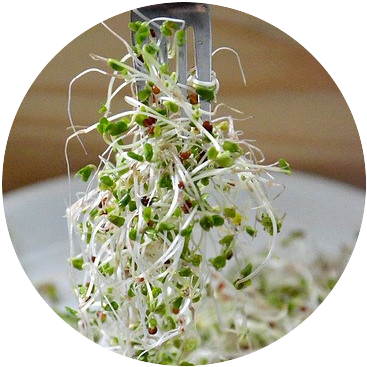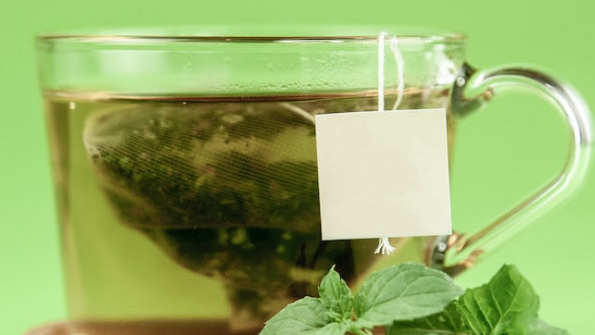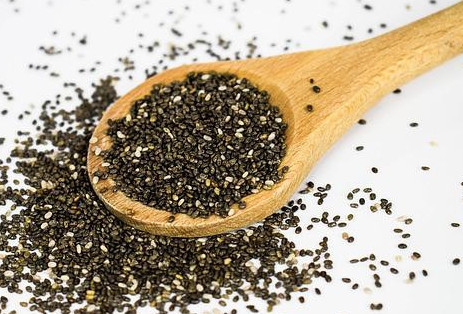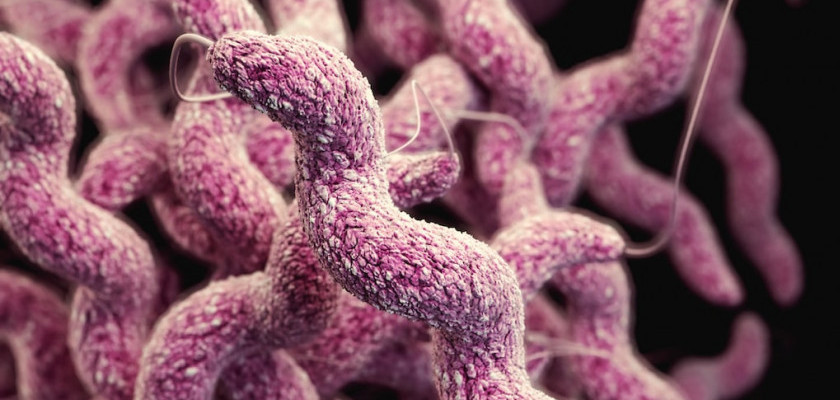
What is H. Pylori?
Helicobacter pylori is one of the oldest bugs that’s been around for at least two hundred thousand years. A notorious bacteria that can be in your gut for your entire lifetime without showing any symptoms.
Because of its spiral shape, it is deemed to survive for a long time. In addition, it protects itself by producing an enzyme called urease, which helps neutralize the acid in the stomach, which breaks down the food we eat for its survival.
This pathogen penetrates by sneaking into the gut lining, causing inflammation, which leads to stomach and peptic ulcers and eventually into cancer if not treated. H Pylori is sometimes called “ ulcer bacteria.”
Now, let us dig deep into this topic since H. pylori has touched the lives of many young and old, rich or poor. It is not limited to any one country but rather affects the entire world.
Here are some statistics from the CDC: about 66% of the world’s population is infected by this giant, including 80% of adults and 10% of children in third-world countries.
According to the World Health Organization ( WHO), H. pylori is considered a Group 1 contributor to carcinogens. The WHO also said, “Approximately 55% of the global cancer burden is attributed to H. pylori infection, and about 900 000 new cases of cancer develop every year” because of its infection.
How Do People Get H. Pylori Infection?
Let’s say the causes of Helicobacter pylori are kind of a mystery because thousands of years ago, bacteria and humans lived in harmony. However, H. pylori has evolved, making it more resistant than ever. It has developed into many strains that colonize humans’ guts, causing gastric ulcers and stomach cancer, which makes it the second leading cause of death in the world today.
How Is Helicobacter Pylori Transmitted?
Here are the main ways it can be transmitted
- Poor hygiene after toilet use
- Contaminated water or food
- Travelers to developing countries
- Older folks have a high risk of getting infected- the older you are, the higher the risk.
- People with low vitamin D
- Individuals with low stomach acid
- People who use antacids constantly
- The bacteria can be transmitted through saliva
- Overcrowded living quarters
The Ten Most Common Symptoms of H. pylori
Most people don’t have any symptoms, even though they might have already developed ulcers in their gut caused by this horrible bacteria. About 5-10% of people who experience some symptoms have advanced cases of serious issues, such as stomach and duodenal ulcers.
- Diarrhea, Bloating, constipation, gassy, belching
- Fatigue/low energy
- Pain and heartburn
- Depression/anxiety
- Loss of appetite
- Unexplained weight loss
- A feeling of fullness after a meal
- Low blood count due to bleeding ulcers
- Dark/tarry stools
- Nausea & vomiting
Other less familiar symptoms that one may experience are:
- Frequent headaches
- Brain fog
- Body and muscle aches
- Joint pain
- Chills/fevers
These can be vague but devastating symptoms common in many other infections and diseases. As a result, they can make you miserable, depress you, overwhelm you, and make you anxious. All these symptoms can be confused with other diseases or infections, so it might take longer to diagnose H. pylori.
What Vitamin Deficiency Does H. pylori Cause?
Several vitamins become deficient when H.pylori infection attacks the gut, including (vitamin C, vitamin A, iron, vitamin D, and folic acid) but the major one is vitamin B12.
Vitamin B12 becomes deficient since the bacteria causes ulcers in the stomach and prevents the absorption of this vitamin from the food we consume or even as a supplement.
How is H.pylori diagnosed?
Blood test 
Several tests are available to diagnose H. pylori, and these are the most common ones.
- Breath test – Also known as a urea breath test, in which you are given a special drink containing a substance that H.pylori breaks down indicating its presence in the breath. The disadvantage of this test is the results are inconsistent. It is also a very expensive test.
- Stool test – This detects substances that trigger the immune system to prevent H.pylori infections found in the stool. This test gives the best evidence of the H.pylori presence and is the most accurate result. And best of all, it is the cheapest, as all you need is poop!
- Blood antibody test – This is not an accurate test to detect H.pylori as it can give a false positive test even after finishing treatment. Also, the antibodies of H. pylori can still be best found 12- 18 months after treatment.
However, it can be a useful test if you’re being tested for the first time and have never had any treatment before from H. pylori
- Endoscopy- A small tissue is taken from the stomach lining (endoscopy), which is a very invasive test. A camera with a long tube passes through your throat to your stomach. It is usually done under anesthesia.
Two approaches to treating H. pylori exist. First, let’s examine the conventional approach, followed by the natural approach.
Conventional treatment

To diagnose H. Pylori a breath, blood, stool, or endoscopy test is done which has been mentioned in detail already please refer to it at the beginning of the article.
Because this bacteria is difficult to get rid of, most health providers’ protocol uses more than one antibiotic as one is not enough to kill the bacteria. They also will add antacids such as Prilosec and a probiotic nowadays as they have realized all those antibiotics can also wipe out your good bacteria.
No matter what the cocktail of antibiotics given there are awful side effects that many patients sometimes stop taking them. Those who finish the course might still have the bug when treatment is done even after being treated two or even three times. This happens to about 20% of people.
But don’t despair the is another way without the horrible side effects. A natural way is an option if you don’t want all the unpleasant experiences of antibiotics.
11 Natural Treatments for H. pylori
Now after going through 14 days of medication or for some 21 days and no relief was attained, some folks go a different route and take matters into their own hands. Now I’m not suggesting to just ditch your doctors but make sure you don’t go it alone rather let them know what you want to do next and how they can support you since the antibiotic didn’t work.
Also in this day and age, patients have to advocate for themselves, and some of them are well-educated about what going on with their health. After all, they know their bodies more than anyone else.
For those who prefer approaching H. pylori in a natural way rather than conventional methods, keep reading. Even for the ones who go for the traditional method, there is something you can learn to enhance your treatment of H. pylori using this method.
These are some of the best ways to treat H.pylori naturally
- Sulforaphane
 Broccoli sprout
Broccoli sprout
Found in broccoli sprouts—A study has shown that an intake of 70g/day of broccoli sprouts reduces the colonization intensity of H. pylori. This was proven to give negative results using urea and stool sample tests.
One study conducted in the Journal of digestive diseases stated 78% ( seven out of nine) of individuals that have eaten broccoli sprouts either (14, 28, or 56 grams) twice a day for about a week tested negative, and six of the remaining negative after 35 days of the study.
They can help to balance the gut microbes. Also, healthcare providers prescribe it for patients while taking antibiotics to reduce its adverse effect on the gut, restore good bacteria, and prevent yeast overgrowth. It is recommended to use lactobacillus and saccharomyces
- Green tea

A study that was done in vitro has properties from green tea that can inhibit H.pylori growth. Because of its natural substance, it showed great ability to treat gastritis caused by H. pylori.
- Matula tea
A tea that’s found in South Africa is known to have effective properties that stop H.pylori when consumed twice daily for 30 days. It has no side effects apart from unpleasant die-offs released by the dead bacteria and toxins from it. This gets better after stopping for a few days two to three days which is a recommendation from the Matula tea company and by doing that it stops the problem.
- Mastic gum
This comes from the pistachio tree, research done in 2010 has proven that mastic gum can eradicate H.pylori bacteria The researchers found 19 out of 59 individuals have healed from the bacteria after taking mastic after chewing the gum for two weeks.
In addition, those who chewed the gum while on the antibiotics had the highest success rate of getting rid of H. pylori
- Aloe Vera

Drinking Aloe vera juice daily or every other day for two weeks can wipe out H.pylori. It can be combined with conventional therapy as well to make them stronger and eradicate the bacteria. A study done on individuals after consuming Aloe vera has demonstrated antimicrobial properties preventing both susceptible and resistant H.pylori strains.
- Glutamine
 Food with glutamine
Food with glutamine
A study conducted in one of the major hospitals Beth Israel Deaconess Centre and Massachusetts Institute of Technology (MIT) proved beneficial results when glutamine-containing foods and supplements were consumed. It relieves gastric damage caused by H.pylori infection like gastric ulcers.
These findings were reported in 2009 in the Journal of Nutrition. This might be used as a possibility as an alternative to antibiotics to treat gastric ulcers as the report stated.
- Black seed

Black seed is an ancient herb that has been used for thousands of years. Prophet Mohamed peace be upon him(PBUH) said “Black seed can heal every disease except death” A study in 2010 found black seed to eradicate H.pylori when taken with an antacid known as Omeprazole which prove to be more effective than the modern conventional method of treating with antibiotics.
- Garlic

It has both an anti-inflammatory and antibiotic substance, eating it raw or cooked can help with the reduction of H. pylori. One study conducted in 2016 found to have a significant decrease in bacteria when two medium sizes of garlic were eaten with lunch and dinner which was about 3 grams of garlic.
- Propolis

These are collected and produced by honey bees. Several studies found an extract from propolis which is available as a supplement has properties that inhibit H.pylori. Propolis has over 300 natural compounds in it that act as anti-inflammatory and immune-stimulatory activity.
- Stree reduction

It seems stress is one thing that is shared by all diseases to weaken the immune system and is no different with people who have anxiety hence making the H.pylori infection worse including gastric ulcers and inflammation.
How to reduce the risk of infection from H. pylori?
Since the source of H. pylori is not known there are no specific advice or ways to avoid its infection. However, it is recommended to always: 
- Wash hands before eating, and after using the bathroom, and prevent sharing utensils with people you don’t know as saliva of someone else spreads the bacteria
- It is important to have a clean source of water because contaminated water is one of the ways to contract H. pylori.
- Prepare food properly and make sure to cook thoroughly for H. pylori can be found in food that’s not cooked or cleaned.
In conclusion
Helicobacter pylori is a vicious bacteria that affects two-thirds of the world’s population. Symptoms it may cause are pain, burning, bloating, burping, etc. It affects the stomach and small intestines causing ulcers and even cancer when not treated.
Raising awareness of H. pylori and what it does to your gut is my goal here as it is a common bacteria that affect humanity at large. In addition, there are choices you can make of what is the best option for treatment so you can make an educated decision when you or a loved one gets infected with this notorious bacteria.
References
- Helicobacter pylori (H. pylori): Symptoms, Treatment & Causes (medicinenet.com)
- Helicobacter pylori: ulcers and more: the beginning of an era – PubMed (nih.gov)
- Antibiotic Resistance: Antibiotic-Resistant Bacteria Treatment (medicinenet.com)
- https://www.ncbi.nlm.nih.gov/pmc/articles/PMC124299/
- https://pubmed.ncbi.nlm.nih.gov/19157800/
- https://www.ncbi.nlm.nih.gov/pmc/articles/PMC5870322/#:~:text=%5B75%2.
- https://www.healthline.com/health/mastic-gum#ulcers
- https://www.ncbi.nlm.nih.gov/pmc/articles/PMC3003218/
- https://pubmed.ncbi.nlm.nih.gov/27761418/
- https://pubmed.ncbi.nlm.nih.gov/24597562/
- https://pubmed.ncbi.nlm.nih.gov/27233102/
- https://www.clinicaleducation.org/resources/abstracts/glutamine-supplements-show-promise-in-treating-stomach-ulcers/
- https://pubmed.ncbi.nlm.nih.gov/20093785/
- https://www.mayoclinic.org/diseases-conditions/peptic-ulcer/symptoms-causes/syc-20354223


Hi Zahra,
Thank you for sharing this informative article on the best treatment for H. pylori. As someone who has encountered the challenges of dealing with this bacterial infection, I appreciate the insights and guidance you provide. H. pylori infection can cause various digestive issues and discomfort, and finding the most effective treatment is crucial for those affected. Your article delves into different treatment options, including antibiotics, probiotics, and natural remedies, highlighting the pros and cons of each approach.
Based on my personal experience, I found that a combination of medical treatment and lifestyle adjustments yielded the best results. It’s essential to consult with a healthcare professional who can diagnose and guide you in choosing the most suitable treatment plan for your specific situation.
I appreciate the balanced perspective you offer in your article, acknowledging that individual responses to treatments may vary. This highlights the importance of personalized care and working closely with healthcare providers to find the most effective solution.
Thanks, Dave I’m glad you were able to get help as H.pylori is a difficult bacteria to get rid of. Your comment will be able to assist someone who is going through H. pylori infection as it is difficult to make the right treatment sometimes.